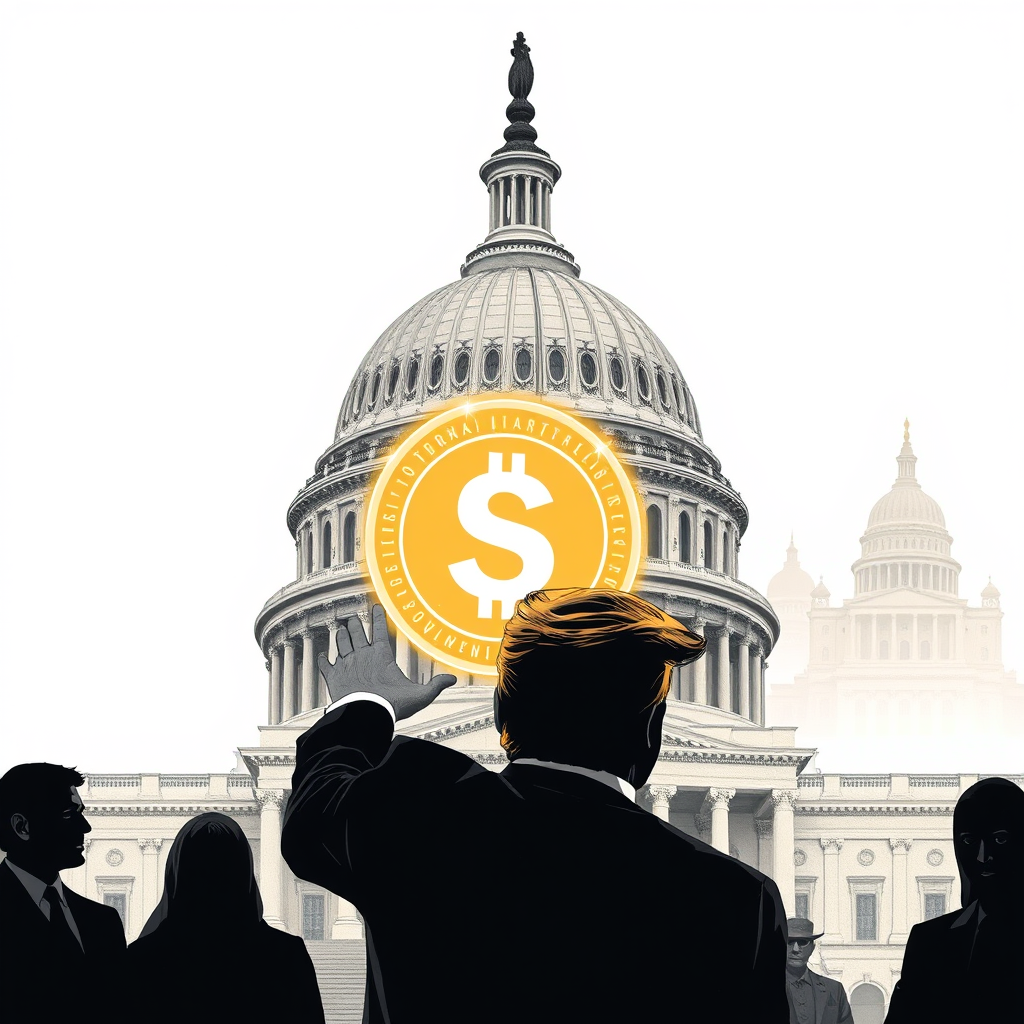Trump Family Crypto Deals Spark Democratic Backlash

A bipartisan effort to regulate stablecoins is facing increasing opposition from Senate Democrats, fueled by concerns that the legislation would disproportionately benefit the Trump family’s recently launched cryptocurrency venture, World Liberty Financial. According to a report in The New York Times, even Democrats who previously supported regulatory frameworks for stablecoins – cryptocurrencies designed to maintain a stable value, typically pegged to the US dollar – are now expressing reservations.
Stablecoins are popular among crypto traders due to their price stability, making them useful for various transactions. The GENIUS Act, backed by the crypto industry, aimed to establish a formal regulatory system for these currencies in the United States, potentially fostering industry growth. However, closed-door meetings revealed Democratic anxieties that the bill would directly benefit the Trump family’s foray into the crypto market.
Donald Trump, once a vocal skeptic of digital currencies, has since embraced them, promising to position the United States as a global “crypto capital.” His company, World Liberty Financial, recently secured a $2 billion deposit agreement with an Emirati venture fund backed by the Abu Dhabi government, effectively channeling funds into a business led by the president’s family.
Senator Elizabeth Warren (D-MA) has publicly condemned the legislation, labeling it a vehicle for corruption, stating it would “make it easier for the president and his family to line their own pockets.” Concerns extend beyond potential financial gain, with senators also voicing worries about the increased risk of fraud and money laundering.
The bill’s passage hinges on securing at least seven Democratic votes in addition to Republican support. In response, both Senator Warren and Senator Jeff Merkley (D-OR) have requested investigations from the Office of Government Ethics into the Trump family’s cryptocurrency dealings, citing “a startling degree of foreign influence” and the potential for a quid pro quo that could threaten national security.
This situation highlights a critical juncture for cryptocurrency regulation in the US. While establishing clear rules for stablecoins could unlock innovation and investment, the perception – and potential reality – of self-dealing by powerful figures erodes public trust and complicates the legislative process. The Democrats’ shift in stance, while politically motivated, raises legitimate questions about the integrity of the bill and the need for greater transparency and safeguards to prevent conflicts of interest. It’s a stark reminder that even seemingly technical legislation can become deeply entangled in political considerations, particularly when significant financial interests are at play.